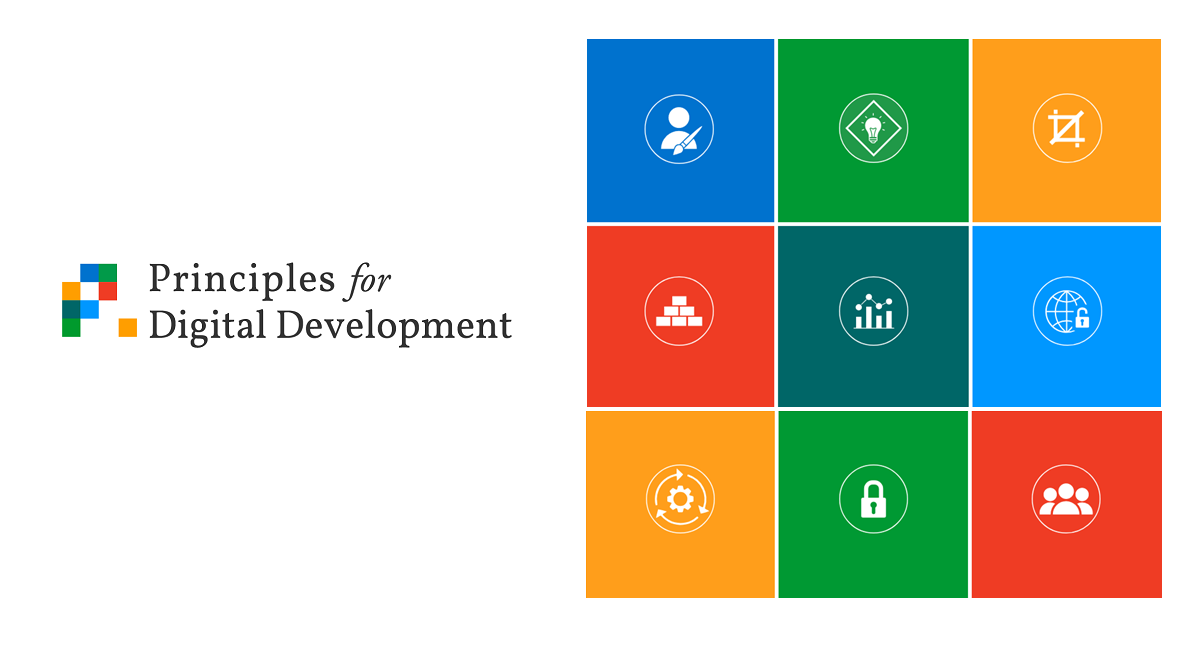In 2018, the IDB endorsed the Principles for Digital Development. With our endorsement, we joined many organizations around the world who share a commitment for using good practices in technology-related development projects.
Nine living guidelines
The Principles for Digital Development are a collaborative initiative to guide practitioners whose projects relate to technology, innovation and connectivity. So far, nine principles have been defined as key elements for encouraging more financially sustainable and socially beneficial results in development via digital methods:
![]()
- Design with the User
- Understand the Existing Ecosystem
- Design for Scale
- Build for Sustainability
- Be Data-Driven
- Use Open Standards, Open Data, Open Source, and Open Innovation
- Reuse and Improve
- Address Privacy and Security
- Be Collaborative
The principles are often referred to as “living guidelines” due to their dynamic and adaptive nature. As more learning and experiences take place, these principles can be transformed to accommodate a changing world.
Digital development in Latina America and the Caribbean
The digital economy brings unique opportunities for developing countries to tackle deep-rooted challenges and effectively change lives for the better through higher productivity and improved public services. For the Latin American and Caribbean countries, as well as our own organization, this reality presents both a strategic challenge and a great opportunity.
This is precisely why the IDB has decided to join this growing initiative. Following the review of the digital strategies of different areas across the IDB, we realized the complimentary nature of these principles to several projects and initiatives which are already underway. These include for example, projects supporting open data and data infrastructure, our initiative “Code for Development” promoting the reuse of open source software, and our work across various social sectors to prepare for the future of work, just to name a few. Going forward, the principles will offer a more concrete set of tools for us to structure and monitor our various efforts in the digital arena, in both our processes and policies. They also prompt us to evaluate our own practices internally, regarding collaboration and reusability of the tools we create in our work. Each team will have the chance to learn more about these principles and explore different ways they can be applied within their different contexts.
In addition to applying these principles to our work, the IDB looks forward to contributing its related knowledge and lessons learned in these areas. We will also take the opportunity to promote a wider dialog about these principles and what their application can look like in Latin America and the Caribbean, while engaging with other changemakers in the region.
Sharing successes and lessons learned
The value of these principles is not only about the transformative potential of technology, but also the compounded impact we can achieve as development actors who collaborate to share their knowledge. When we consider the prospect of using technology for the benefit of society, as a global community we are learning to strike a careful balance between developing integral solutions or following an alluring trend. The titans of Silicon Valley offer appealing formulas to “disrupt” and “fail” which capture our imaginations. Nevertheless, there are organizations whose responsibility is to respond to the public. How do we help ensure that “failure” does not occur at their expense?
This is a question that many organizations and public agencies have faced over the past decade. As the opportunity to apply technologies to development challenges inspires new possibilities for the future, the quick pace of change has also revealed a steep learning curve. The Principles for Digital Development are a collaborative effort to build this collective memory. By participating in this shared dialog about what works relating to technology and development, we can create more informed, collaborative projects moving forward and help each other to avoid replicating the mistakes of the past.


Leave a Reply